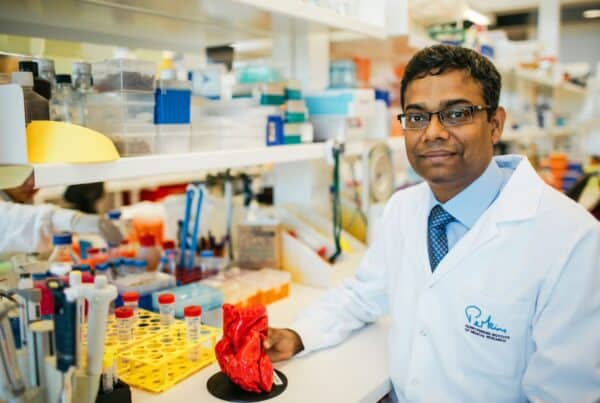Funding boost to supercharge medical research and innovation
Read More
Endocrinology and Pharmacology are the study of how hormones and pharmaceuticals act in the body respectively. At the molecular and cellular level, the focus is upon the receptors in the cell membranes that bind the hormones and pharmaceuticals, transmitting or blocking specific signals into our cells. The laboratory’s work is currently focused primarily on developing better treatments for kidney disease, cardiovascular disease and cancer.
This group mainly studies the molecular function of G protein-coupled receptors (GPCRs) and their signalling pathways, but is also starting to expand into other target classes such as receptor tyrosine kinases (RTKs), because of their importance in cancer in particular (Ayoub et al., 2013; O’Brien et al., 2018), and the Receptor for Advanced Glycation End-Products (RAGE), especially because of its importance in cardiovascular disease (Pickering et al., 2019).
GPCRs are a family of over 800 different cell surface sensors in the human body. Their function is diverse and, among many more, includes the detection of light (vision) and odorants (smell), as well as the regulation of growth, metabolism, reproduction, immune responses etc. Key GPCRs also have important roles in cancer, such as the chemokine receptors (Watts et al., 2013). Not surprisingly, between a third and a half of all currently available pharmaceuticals modulate GPCR function to mitigate various diseases and conditions.
The major research focus of the group is the study of receptor complexes and their role in receptor function. Receptors interact with a variety of different proteins as well as other receptors, and it is important to understand how the resultant complexes work in terms of signalling and regulation. The aim is to use this knowledge to develop substantially improved pharmaceuticals with fewer side effects.


